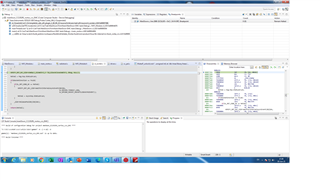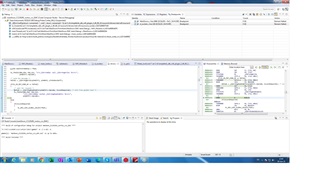Other Parts Discussed in Thread: CC3120, CC3135, CC31XXEMUBOOST, CC1352R
Hi,
for test purposes we should transmit continuous packets on different channels.
When I start to transmit the module transit continuously and work.
To change the channel I stop the transmission to change parameter and open socket again.
Here the problem exist.
Whet the continuous packet transmission is in progress using sl_Close(socket); to stop the transmission return error code (-2005) SL_API_ABORTED.
When there is a finite number of frames for transmission and after finishing the transmission invoke sl_Close() it work.
Best regards
Ilian






